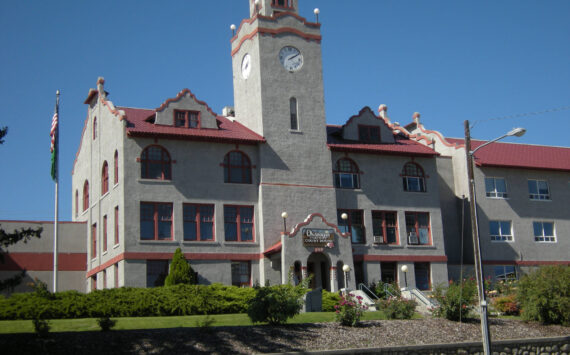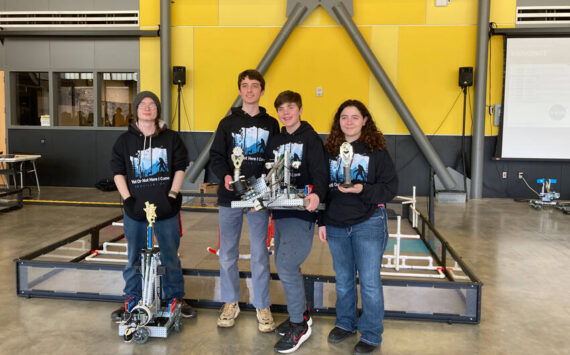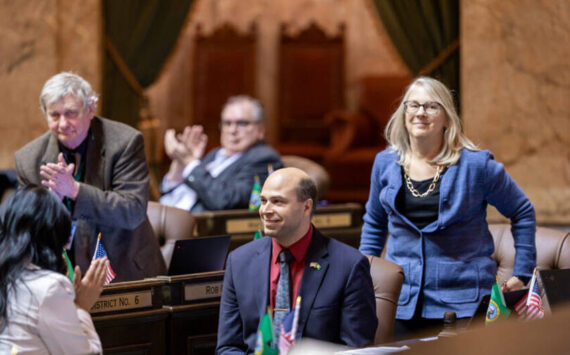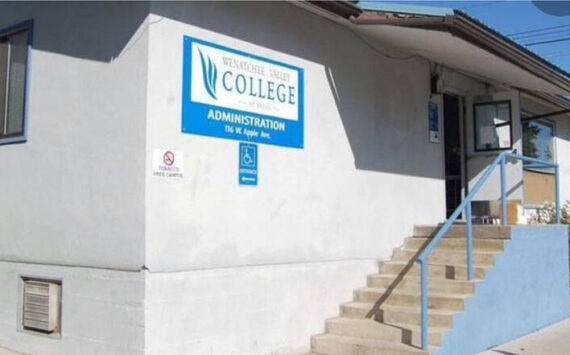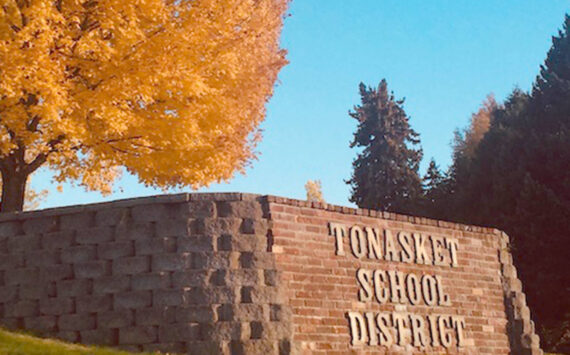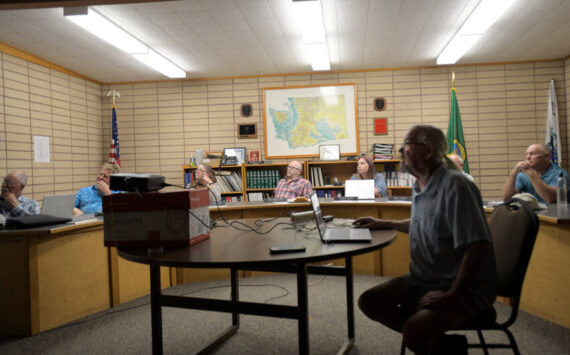TONASKET – A “Learn Before You Burn” presentation from the Washington State Department of Ecology informed attendees to the Green Okanogan Alternative Faire about outdoor burning rules and safety on Saturday, April 23.
Presented by Sean Hopkins from the DOE, the presentation was brief but offered helpful advice on how to safely burn outdoors and what is legal and illegal to burn.
Hopkins’ started his slide presentation by addressing the question of “what is the law?”
“Even where burning is allowed, everyone should try to reduce burning as much as possible,” Hopkins said. “If you must burn, burn only clean, dry, unprocessed natural vegetation. Fire is an important tool and we must use it responsibly.”
Hopkins’ next addressed the question of “why decrease burning?”
“Burning produces air pollution and the fine particulates settle in our lungs,” he said. “The health effects of burning include asthma, bronchitis and emphysema. The people who are most at risk are children, elderly and people with preexisting health problems.”
Hopkins added that children breathe two times more air than adults because they spend more time outdoors and that asthma is a big problem in Washington.
He then went into more details about the harmful effects of smoke.
“Air pollutants commonly found in smoke are: carbon monoxide, nitrous oxide, sulfur dioxide, particulates, volatile organic compounds and dioxins,” Hopkins’ slide stated. “The long term health impacts can be: cancer, infertility, asthma, birth defects, immune system changes and learning disorders.”
If people do choose to burn, there are some guidelines they should follow, Hopkins said. Along with only burning natural vegetation, a residential fire should be no large than four feet by four feet by three feet while a recreational fire should be no larger than three feet by two feet. He said other outdoor burning usually requires a permit, which is free and can be obtained from the fire department and sometimes the forest service.
Some general rules for a fire are that it must be 50 feet from structures, to burn only one pile at a time, to attend the fire at all times, to put the fire dead-out before leaving it and not to cause a nuisance.
“Just remember that your neighbors have a right to breathe clean air,” Hopkins added.
Hopkins next explained what could not be burned.
“Anything in a burn barrel and anything other than natural vegetation can not be burned,” he said. “No diesel or gas accelerants can be used to start the fire and there should be no smoke impacts.”
Before burning, Hopkins said people should notify their local fire departments and to check for burn bans. They can also call the Ecology Burn Hotline or visit the DOE’s Web site to check if it’s a good day to burn.
“The first thing I do each morning is to decide if it’s a good day for people in Klickitat, Kittitas, Chelan, Douglas and Okanogan counties to burn,” Hopkins said.
He then offered some tips for smoke management. The main point he made was to always get a permit before burning.
“You should remember that dry fuel equals less smoke, to check the weather forecast, to identify potential impacts and to use daytime heat to lift the smoke,” Hopkins said. “Fires should always be started during the hottest point of the day so the heat lifts the smoke up and disperses it.”
When planning for a fire, people should set up back burn or fire-breaks, have the appropriate equipment and personnel on hand, call air authority the day before a large fire that will produce a lot of smoke, notify local fire departments and notify neighbors.
Hopkins’ next question he addressed was “What happens if I burn when or what I’m not supposed to?”
“You can be fined,” his slide stated. “You will pay the suppression costs if the fire escapes. Know the rules before you burn!”
Hopkins then gave suggestions for alternatives to burning. They included creating compost or mulch and recycling paper. He said more alternatives can be found at ecy.wa.gov/BreatheTheDifference.
For help on learning the rules of burning or other questions about burning, the Washington Agricultural Burn Hotline can be called at 1-800-406-5322. To file a complaint about a fire, call 1-866-211-6284. Finally, Hopkins gave his own contact information and contact information for the Washington State Department of Ecology Central Regional Office Air Quality, which is located at 15 West Yakima Avenue, Suite 200, Yakima, WA 98902. The office number is (509) 575-2490. Hopkins can be reached by e-mailed sean.hopkins@ecy.wa.gov.
